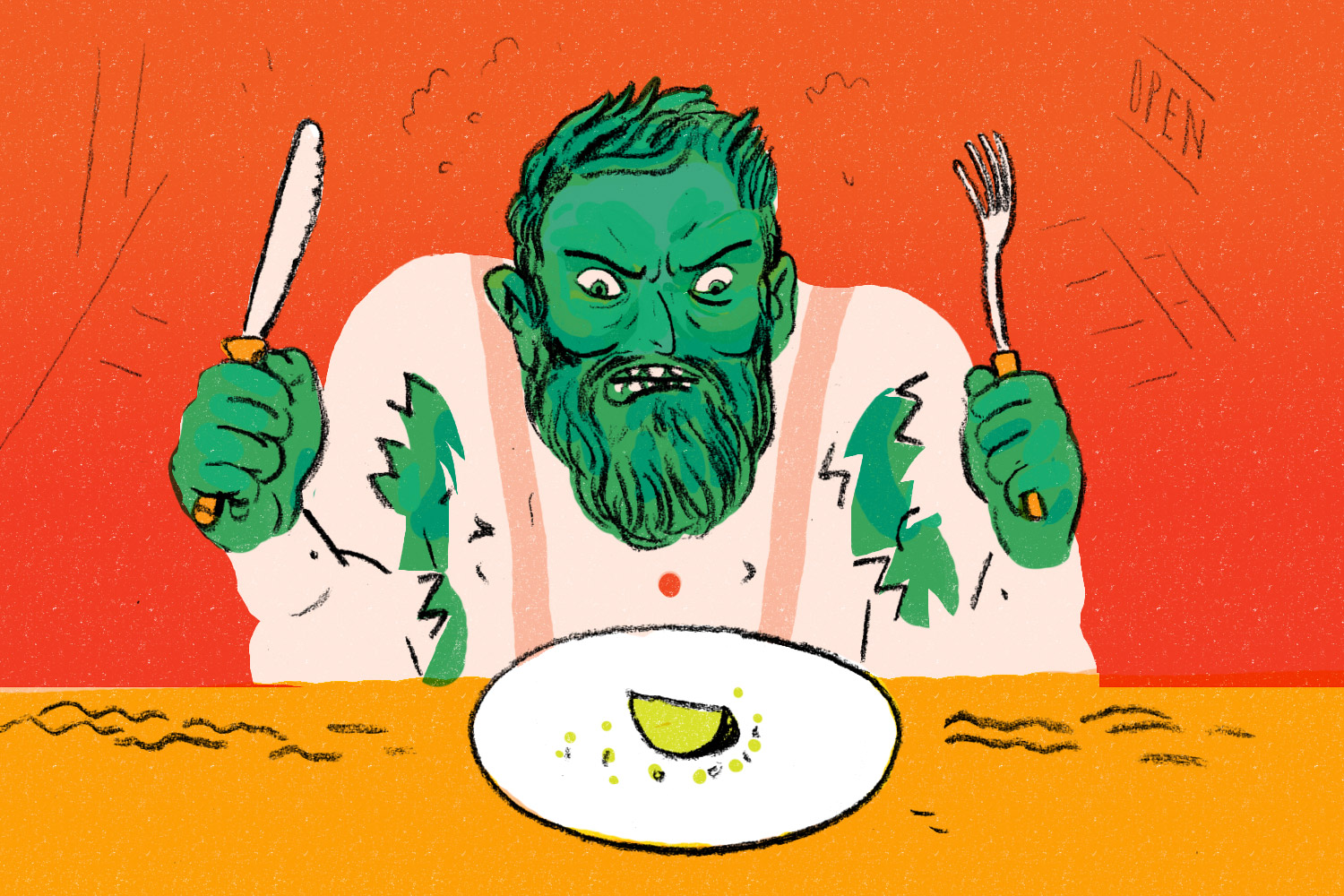
Long-term couples know all too well the perils of the early evening hours: that touchy time after work but before dinner hits the table.
It’s prime time for getting “hangry”, a handy portmanteau for hungry and angry. People commonly feel an uptick in anger or aggression when they’re hungry, says Dr. Brad Bushman, a professor of psychology at Ohio State University. “The brain needs fuel to regulate emotions, and anger is the emotion people have the most difficulty regulating,” he explains.
Your brain’s primary fuel source is glucose, which your body makes from the foods you eat. And as far as fuel consumption goes, “the brain is a very demanding organ,” Bushman says. While your brain constitutes just 2% of your body weight, it uses 20% to 30% of the energy you consume, he says.
MORE: Here’s What Eating Does To Female Desire
So why do you feel hangry in the evening, but not first thing in the morning when you’ve gone the whole night without food? Willpower and self-control tend to flag as the day wears on, which further torpedoes your mood, Bushman says.
That’s bad news for your partner. Bushman’s research has shown that compared to well-fed couples, glucose-deprived people tend to stick more pins into voodoo dolls meant to represent their spouses. The underfed study participants were also more likely to blast their partners with unpleasant noises.
When your brain is struggling to control its emotions, you’re likely to lash out at the people with whom you feel most comfortable, Bushman and his colleagues concluded. So loved ones and close friends tend to bear the brunt of your glucose-starved brain.
There seems to be another, deeper layer to your hunger-induced emotional fragility.
Some of the same appetite hormones that signal to your brain It’s time to eat! also fire up those brain regions linked with stress and anxiety, says Dr. Paul Currie, a professor of psychology and neuroscience at Reed College in Portland, Oregon. In fact, Currie says some of those regions overlap.
MORE: The 14 Worst Kinds of Late People
All of this makes sense, he says, when you look at the necessity of food in “evolutionary” terms. “If you’re an animal and you’re hungry, you need food to survive,” he explains. “So it’s natural that you would feel anxious and irritable and preoccupied until you’ve met that need.”
What’s more, this stress-hunger crosstalk may go in both directions. Research has found that people tend to reach for food (especially energy-dense junk food) when feeling stressed.
Of course, the chemical and neuronal processes going on in your hungry brain are complex and vary from one person to another, Currie says. So while you may have no problem keeping your cool before dinner, your friend may be an anger-grenade with a pulled pin.
Fortunately, there’s a simple solution: eat something. If you know your mood tends to plummet before dinner, a preemptive afternoon snack that includes some carbs and protein—like peanut butter and apple, or some yogurt with berries—can help you hold onto your typically sunny disposition.
You Asked: Your Top 10 Health Questions Answered










More Must-Reads from TIME
- Cybersecurity Experts Are Sounding the Alarm on DOGE
- Meet the 2025 Women of the Year
- The Harsh Truth About Disability Inclusion
- Why Do More Young Adults Have Cancer?
- Colman Domingo Leads With Radical Love
- How to Get Better at Doing Things Alone
- Michelle Zauner Stares Down the Darkness
Contact us at letters@time.com